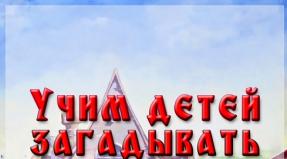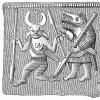Social support for people with disabilities. Types of social protection for disabled people in the Russian Federation Educational benefits
2,342 total views, 33 views today
When is a person considered disabled?
According to the law, a disabled person is a person who has a persistent violation of the physiological state of his body. Failure to perform a number of mandatory functions for this reason, as well as the presence of defects that act as a limitation of full-fledged life, are the reason for the provision of social support. Disability must be confirmed and the reasons for its occurrence must be identified. These are:
- the presence of a general or occupational disease;
- health restrictions from childhood;
- injuries and injuries received during employment or during hostilities;
- diseases resulting from man-made disasters, in particular, accidents at the Chernobyl nuclear power plant.
There are a number of other reasons that are combined into a standard list and indicated in the legislation of the Russian Federation. Disability is assigned after medical and social expertise or ITU held in medical institution, where the citizen is being treated, on a commission. If a person is recognized as a disabled person, he is provided with an appropriate certificate, which in the future is the basis for the provision of benefits and other types of social assistance.
There are only three disability groups and each of them has certain characteristics. To confirm their status, a citizen must once a year ( – every 2 years, – just once) undergo re-examination.
The regulation of issues and situations related to the presence of health restrictions in the form of disability among citizens is carried out in accordance with federal legislation, as well as on the basis of local regulations, orders and individual provisions.
Social support for people with disabilities is expressed in the provision of a specific set of benefits and surcharges, which depends on a number of factors:
- disability groups - 1, 2 or 3, including disabled children and people with limited health from childhood;
- the causes of such problems can be radiation exposure or injury, mutilation c.
Along with an individual set of benefits and targeted assistance provided by a number of foundations, support for people with disabilities it is also carried out on a general basis and applies to all citizens with such a problem.
Social support for disabled people of group 1
Health restrictions of the first category include the most complex, severe and pronounced disorders. the following:
- the possibility of out-of-competition enrollment in a public educational institution of any level, if the exam is successfully passed by such a citizen;
- for full-time students, an increased scholarship is provided;
- working week for citizens with disabilities is shrinking up to 35 hours;
- people with disabilities have the right at the place of employment to take leave at their own expense up to 60 days annually;
- the right to free movement in any type of public transport within the region of residence of the citizen, as well as for the person accompanying him, is granted, except for taxi rides;
- people with disabilities are exempt from paying taxes on real estate and inherited property.
The following types of payments can be noted as benefits and pensions:
- Along with the old-age pension, disabled persons receive a disability allowance in the amount of RUB 3,626.98.
- In the absence of the required insurance experience, disabled people can apply for a social pension in the amount of 12082,06 rub. depending on the group . If there are dependents, it is paid extra 1778.06 rubles for each, but not more than three.
The receipt of the first group of disability occurs in a standard manner, subject to persistent disorder of the basic functions of the body and the inability of a citizen to independently serve himself and perform any actions.
Social support for disabled people of 2 groups
Disabled people of the second group can also count on. It should be said that there are no special differences between the benefits provided to disabled people of the first group and citizens of this category, with the exception of the amount of benefits and pensions:
- the monthly surcharge for disabled persons of the second category is RUB 2590.24;
- social pension - RUB5,180.24
As benefits, one can note the right to reduce hours in the working week for working citizens, additional leave, admission to an educational institution out of competition, the right to an increased scholarship and full exemption from tax payments.
This group includes people with health limitations in the form of deafness, blindness and other similar disorders. In relation to such citizens, certain types of assistance are provided: the services of a deaf and phonetic interpreter, as well as audio commentary and complete exemption from payment of a radio point.
The second group of disability is formalized only in the presence of persistently expressed disorders of the body's functioning, as well as injuries and injuries that negatively affect human health of a certain degree of complexity and severity.
Social support for disabled people of 3 groups
Disabled persons of the third group are citizens who have passed a medical and social examination, which confirmed the presence of a persistent violation of the physiological state of a person, but of a moderate type.
- the surcharge is - RUB 2073.51;
- social pension - RUB 4,403.24
The set of benefits includes those types that are for disabled people of the first and second groups, with the exception of out-of-competition admission to universities and increased scholarships. Students take entrance exams and are enrolled in education on a general basis. Disabled persons of the third group do not have tax benefits.
Also, the legislation provides 50% refund spent on the payment of medicines for those citizens who carry out labor activities.
Social support for disabled children
The legislation of the Russian Federation provides for a number of benefits that are provided for those with health limitations. expressed as follows:
- provision of monthly social benefits for children who cannot attend an educational or educational institution, in order to organize education and upbringing at home;
- reimbursement of funds spent on travel to the place of recreation once a year, including travel of an accompanying person;
- free passage of necessary medical and rehabilitation procedures in state-type clinics;
- reimbursement of funds spent on the purchase of technical means of rehabilitation and the purchase of medicines.
In addition to providing social assistance, compulsory payments are made in favor of a child with health limitations. The current average allowance for a disabled child is 13,000 rubles or more.
Social support for parents of disabled children
If available in the family a child with a disability, his parents can also look forward to receiving some species. All measures can be roughly divided into several categories:
- labor- are provided at the parents' place of work in the form of a decrease in hours in the working week, the provision of additional days off and holidays;
- housing- Granting subsidies for improving living conditions, as well as registering a land plot for building a house. Discount on payment for housing and communal services at a rate of 50%;
- retirement- the right to an increased allowance and a reduction in the required length of service for retirement for 5 years;
- medical- the possibility of free and extraordinary service and receipt of rehabilitation funds, as well as medicines at a discount;
- tax- expressed in exemption from payment of a number of tax liabilities, provision of a standard deduction in the amount of 3,000 rubles for every child with a disability.
Social benefit for a child with disabilities is 1200 rubles monthly. Those citizens who are unable to work due to caring for a disabled child can apply for an allowance in the amount of 5 500 rubles.
Rehabilitation and habilitation of people with disabilities
Since the beginning of 2016, a law has come into force, the content of which has defined the boundaries between concepts. Despite the fact that the terms are consonant, the difference between them is significant. Rehabilitation Is a set of measures aimed at restoring body functions after injury or lost as a result of an illness. Habilitation implies the formation of initial skills in children with developmental disabilities or disabilities.
As rehabilitation measures, it can be noted:
- Complex of medical procedures, including prosthetics and spa treatment.
- Career guidance - assistance in finding a job within the framework of federal programs and further adaptation, legal support.
- Socio-environmental structure - the provision of psychological assistance for the introduction of such citizens into the social environment.
Within the framework of these measures, disabled persons are provided with technical means, transport, communication devices. In addition, it turns out information support service.
As for habilitation, within the framework of this procedure, the following types of assistance are provided:
- system medical activities aimed at restoring the functions of the child's body, both completely and partially;
- social support for children and their parents;
- pedagogical support.
Conclusion
As a result, several conclusions can be drawn:
- Disability gives a citizen the right to receive a complex social measures support. The impairment of health must be confirmed by a commission and formalized in the form of an official medical report.
- The law provides for three groups of health restrictions, and each of them has its own parameters, characteristics, procedure for registration. Payments and benefits are also different depending on the group.
- Children with disabilities and their parents have the right to receive various social support measures at the federal and local levels.
- The law provides for measures to help citizens during periods of rehabilitation and habilitation.
ON SOCIAL PROTECTION OF PERSONS WITH DISABILITIES IN THE RUSSIAN FEDERATION
(as amended by Federal Laws of 24.07.1998 N 125-FZ, of 04.01.1999 N 5-FZ,
from 17.07.1999 N 172-FZ, from 27.05.2000 N 78-FZ)
This Federal Law determines the state policy in the field of social protection of disabled people in Russian Federation, the purpose of which is to provide disabled people with equal opportunities with other citizens in the exercise of civil, economic, political and other rights and freedoms provided for by the Constitution of the Russian Federation, as well as in accordance with the generally recognized principles and norms of international law and international treaties of the Russian Federation.
Chapter I. GENERAL PROVISIONS
Article 1. The concept of "disabled", the basis for determining the group of disability
A disabled person is a person who has a health disorder with a persistent disorder of the body's functions, caused by diseases, the consequences of injuries or defects, leading to a limitation of life and necessitating his social protection.
Restriction of life activity - full or partial loss of a person's ability or ability to carry out self-service, independently move, navigate, communicate, control their behavior, learn and engage labor activity.
Depending on the degree of disorder of body functions and limitation of vital functions, persons recognized as disabled are assigned a disability group, and persons under the age of 18 are assigned the category of "disabled child".
The recognition of a person as a disabled person is carried out by the State Service of Medical and Social Expertise. The procedure and conditions for recognizing a person as a disabled person are established by the Government of the Russian Federation.
Article 2. The concept of social protection of disabled people
Social protection of people with disabilities is a system of state-guaranteed economic, social and legal measures that provide people with disabilities with conditions for overcoming, replacing (compensating) disabilities and aimed at creating opportunities for them to participate in society on an equal basis with other citizens.
Article 3. Legislation of the Russian Federation on social protection of disabled people
The legislation of the Russian Federation on the social protection of disabled people consists of the relevant provisions of the Constitution of the Russian Federation, this Federal Law, other federal laws and other regulatory legal acts of the Russian Federation, as well as laws and other regulatory legal acts of the constituent entities of the Russian Federation.
If an international treaty (agreement) of the Russian Federation establishes rules other than those provided for by this Federal Law, then the rules of the international treaty (agreement) shall apply.
Article 4. Competence of federal bodies of state power in the field of social protection of disabled people
The jurisdiction of federal government bodies in the field of social protection of disabled persons includes:
- determination of state policy in relation to persons with disabilities;
- the adoption of federal laws and other regulatory legal acts of the Russian Federation on the social protection of disabled people (including those regulating the procedure and conditions for providing disabled people with a unified federal minimum of social protection measures); control over the implementation of the legislation of the Russian Federation on the social protection of disabled people;
- conclusion of international treaties (agreements) of the Russian Federation on the issues of social protection of disabled people;
- establishment general principles organization and implementation of medical and social expertise and rehabilitation of disabled people;
- determination of criteria, establishment of conditions for recognizing a person as a disabled person;
- establishment state standards for social services, technical means rehabilitation, means of communication and informatics, the establishment of norms and rules that ensure the accessibility of the living environment for people with disabilities; determination of the relevant certification requirements;
- establishment of the procedure for accreditation and licensing of organizations, regardless of organizational and legal forms and forms of ownership, carrying out activities in the field of rehabilitation of disabled people;
- the implementation of accreditation and licensing of enterprises, institutions and organizations under federal ownership, carrying out activities in the field of rehabilitation of disabled people;
- development and implementation of federal targeted programs in the field of social protection of disabled people, control over their implementation;
- approval and financing of federal basic programs for the rehabilitation of disabled people;
- creation and management of objects of the rehabilitation industry, which are in federal ownership;
- determination of the list of specialties of workers employed in the field of medical and social examination and rehabilitation of disabled people, organization of training in this area;
- coordination of scientific research, financing of research and development work on the problems of disability and disabled people;
- development of methodological documents on the issues of social protection of disabled people;
- the establishment of quotas for jobs for people with disabilities;
- assistance in the work of all-Russian public associations of disabled people and rendering assistance to them;
- the establishment of federal benefits, including taxation, for organizations, regardless of organizational and legal forms and forms of ownership, that invest in the social protection of disabled people, produce special industrial goods, technical means and devices for people with disabilities, provide services to people with disabilities, as well as public associations disabled people and enterprises, institutions, organizations, business partnerships and societies owned by them, the authorized capital of which consists of the contribution of a public association of disabled people;
- the establishment of federal benefits for certain categories of disabled people;
- formation of indicators federal budget on expenditures for social protection of disabled people;
- the establishment of a unified registration system for disabled people in the Russian Federation, including disabled children, and the organization, on the basis of this system, of statistical monitoring of the socio-economic situation of disabled people and their demographic composition.
Article 5. Competence of state authorities of constituent entities of the Russian Federation in the field of social protection of disabled people
The jurisdiction of the state authorities of the constituent entities of the Russian Federation in the field of social protection of disabled persons includes:
- implementation of the state policy regarding disabled people in the territories of the constituent entities of the Russian Federation;
- adoption of laws and other normative legal acts of the constituent entities of the Russian Federation on the social protection of disabled people, control over their implementation;
- determination of priorities in the implementation of social policy in relation to persons with disabilities in the territories of the constituent entities of the Russian Federation, taking into account the level of socio-economic development of the territory of the constituent entity of the Russian Federation;
- creation of enterprises, institutions and organizations of the State Service of Medical and Social Expertise, the State Service of the Rehabilitation Industry, monitoring their activities;
- accreditation and licensing of enterprises, institutions and organizations owned by the constituent entities of the Russian Federation, carrying out activities in the field of rehabilitation of disabled people;
- participation in the implementation of federal programs in the field of social protection of disabled people, development and financing of regional programs in this area;
- approval and financing of the list of rehabilitation measures carried out in the territories of the constituent entities of the Russian Federation, taking into account the socio-economic, climatic and other characteristics in addition to the federal basic rehabilitation programs for the disabled;
- creation and management of facilities in the field of social protection of disabled people under the jurisdiction of the constituent entities of the Russian Federation;
- organization and coordination of training activities in the field of social protection of disabled people;
- coordination and financing of scientific research, research and development work in the field of social protection of disabled people;
- development, within its competence, of methodological documents on the issues of social protection of disabled people;
- assistance in the work and assistance to public associations of people with disabilities in the territories of the constituent entities of the Russian Federation;
- the establishment of benefits, including taxation, for organizations, regardless of organizational and legal forms and forms of ownership, investing in the social protection of disabled people, producing special industrial goods, technical means and devices for people with disabilities, providing services to people with disabilities, as well as public associations of people with disabilities, and enterprises, institutions, organizations, business partnerships and societies owned by them, the authorized capital of which consists of the contribution of a public association of disabled people;
- the establishment of benefits for disabled people or certain categories of disabled people in the territories of the constituent entities of the Russian Federation at the expense of the budgets of the constituent entities of the Russian Federation;
- formation of the budgets of the constituent entities of the Russian Federation in terms of spending on social protection of disabled people.
Federal bodies of state power and bodies of state power of the constituent entities of the Russian Federation may, by agreement, transfer to each other part of their powers in the field of social protection of disabled people.
Article 6. Liability for causing harm to health resulting in disability
For causing harm to the health of citizens, which led to disability, the persons guilty of this bear material, civil, administrative and criminal responsibility in accordance with the legislation of the Russian Federation.
Chapter II. MEDICAL AND SOCIAL EXPERTISE
Article 7. The concept of medical and social expertise
Medical and social examination - determination in accordance with the established procedure of the needs of the examined person in measures of social protection, including rehabilitation, based on an assessment of the disabilities caused by persistent disorder of the body's functions.
Medical and social examination is carried out on the basis of a comprehensive assessment of the state of the body based on the analysis of the clinical and functional, social, household, occupational, and psychological data of the examined person using classifications and criteria developed and approved in the manner determined by the Government of the Russian Federation.
Article 8. State Service of Medical and Social Expertise
1. Medical and social expertise is carried out by the State Service of Medical and Social Expertise, which is part of the system (structure) of the bodies of social protection of the population of the Russian Federation. The procedure for organizing and operating the State Service for Medical and Social Expertise is determined by the Government of the Russian Federation.
2. Medical services when registering citizens for examination at the institutions of the State Service of Medical and Social Expertise, rehabilitation measures are included in the federal basic program of compulsory medical insurance for citizens of the Russian Federation and are financed from federal and territorial compulsory medical insurance funds.
3. The State Service of Medical and Social Expertise is responsible for:
- determination of the group of disability, its causes, timing, time of the onset of disability, the needs of the disabled person in various types of social protection;
- development of individual rehabilitation programs for disabled people;
- study of the level and causes of disability in the population;
- participation in the development of comprehensive programs for the prevention of disability, medical and social rehabilitation and social protection of disabled people;
- determination of the degree of loss of professional working capacity of persons who have received a work injury or an occupational disease;
- determination of the cause of death of a disabled person in cases where the legislation of the Russian Federation provides for the provision of benefits to the family of the deceased.
The decision of the body of the State Service of Medical and Social Expertise is binding on the relevant state authorities, bodies local government, as well as organizations, regardless of organizational and legal forms and forms of ownership.
Chapter III. REHABILITATION OF DISABLED
Article 9. The concept of rehabilitation of disabled persons
1. Rehabilitation of people with disabilities is a system of medical, psychological, pedagogical, socio-economic measures aimed at eliminating or as fully compensating for the disabilities caused by health problems with persistent disorders of the body's functions. The goal of rehabilitation is to restore the social status of a disabled person, achieve material independence and his social adaptation.
2. Rehabilitation of people with disabilities includes:
- medical rehabilitation, which consists of restorative therapy, reconstructive surgery, prosthetics and orthotics;
- vocational rehabilitation of disabled people, which consists of vocational guidance, vocational education, vocational and industrial adaptation and employment;
- social rehabilitation of disabled people, which consists of social and environmental orientation and social adaptation.
Article 10. Federal Basic Program for the Rehabilitation of Persons with Disabilities
The federal basic program for the rehabilitation of disabled people is a guaranteed list of rehabilitation measures, technical means and services provided to a disabled person free of charge at the expense of the federal budget.
The federal basic program for the rehabilitation of disabled people and the procedure for its implementation are approved by the Government of the Russian Federation.
Rehabilitation equipment and services are provided to people with disabilities, as a rule, in kind.
Article 11. Individual rehabilitation program for a disabled person
An individual rehabilitation program for a disabled person is a complex of optimal rehabilitation measures for a disabled person, developed on the basis of the decision of the State Service of Medical and Social Expertise, which includes certain types, forms, volumes, terms and procedure for the implementation of medical, professional and other rehabilitation measures aimed at recovery, compensation for disturbed or lost functions of the body, restoration, compensation for the ability of a disabled person to perform certain types of activities.
An individual rehabilitation program for a disabled person is mandatory for implementation by the relevant state authorities, local authorities, as well as organizations, regardless of organizational and legal forms and forms of ownership.
The individual rehabilitation program for a disabled person contains both rehabilitation measures provided to a disabled person free of charge in accordance with the federal basic program for the rehabilitation of disabled people, and rehabilitation measures, in which the disabled person himself or other persons or organizations take part in the payment, regardless of the organizational and legal forms and forms of ownership.
The volume of rehabilitation measures provided for by the individual rehabilitation program for a disabled person may not be less than that established by the federal basic program for the rehabilitation of disabled people.
An individual rehabilitation program is of a recommendatory nature for a disabled person, he or she has the right to refuse one or another type, form and volume of rehabilitation measures, as well as from the implementation of the program as a whole. A disabled person has the right to independently decide the issue of providing himself with a specific technical means or type of rehabilitation, including cars, wheelchairs, prosthetic and orthopedic products, printed publications with a special font, sound amplifying equipment, alarms, video materials with subtitles or sign language interpretation, and other similar means.
If the technical or other means or service provided for by the individual rehabilitation program cannot be provided to the disabled person, or if the disabled person has purchased the appropriate means or paid for the service at his own expense, then he is paid compensation in the amount of the cost of the technical or other means, services that must be provided to the disabled person.
The refusal of a disabled person (or a person representing his interests) from an individual rehabilitation program as a whole or from the implementation of its individual parts releases the relevant state authorities, local self-government bodies, as well as organizations, regardless of organizational and legal forms and forms of ownership, from responsibility for its implementation and does not give a disabled person the right to receive compensation in the amount of the cost of rehabilitation measures provided free of charge.
Article 12. State service for the rehabilitation of disabled people
The State Service for the Rehabilitation of Disabled People is a set of state authorities, regardless of departmental affiliation, local government bodies, institutions of various levels that carry out measures for medical, vocational and social rehabilitation.
The coordination of activities in the field of rehabilitation of disabled people is carried out by the Ministry of Social Protection of the Population of the Russian Federation.
Rehabilitation institutions are institutions that carry out the process of rehabilitation of disabled people in accordance with rehabilitation programs.
Federal executive authorities, executive authorities of the constituent entities of the Russian Federation, taking into account regional and territorial needs, create a network of rehabilitation institutions and ensure the development of a system of medical, vocational and social rehabilitation of disabled people, organize the production of technical means of rehabilitation, the development of services for disabled people, contribute to the development of non-state rehabilitation institutions under they have licenses for this type of activity, as well as funds different forms property and interact with them in the implementation of the rehabilitation of disabled people.
Financing of rehabilitation measures is carried out at the expense of the federal budget, funds from the budgets of the constituent entities of the Russian Federation, federal and territorial compulsory medical insurance funds, the State Employment Fund of the Russian Federation, the Pension Fund of the Russian Federation, the Social Insurance Fund of the Russian Federation (in accordance with the provisions on these funds) , other sources not prohibited by the legislation of the Russian Federation. Financing of rehabilitation measures, including the maintenance of rehabilitation institutions, is allowed on the basis of cooperation between budgetary and extrabudgetary funds.
The procedure for the organization and operation of the State Service for the Rehabilitation of Persons with Disabilities is determined by the Government of the Russian Federation.
Chapter IV. LIFE SUPPLY FOR PERSONS WITH DISABILITIES
Article 13. Medical assistance to disabled people
Providing qualified medical care disabled people including drug supply, carried out free of charge or on preferential terms in accordance with the legislation of the Russian Federation and the legislation of the constituent entities of the Russian Federation.
The procedure and conditions for the provision of qualified medical care to various categories of disabled persons are determined by the Government of the Russian Federation.
Medical rehabilitation of disabled people is carried out within the framework of the federal basic program of compulsory medical insurance of the population of the Russian Federation at the expense of federal and territorial compulsory medical insurance funds.
Article 14. Ensuring unimpeded access to information for persons with disabilities
The state guarantees the disabled person the right to receive the necessary information. To this end, measures are being taken to strengthen the material and technical base of editorial offices, publishing houses and printing enterprises that produce special literature for disabled people, as well as editorial offices, programs, studios, enterprises, institutions and organizations that produce gramophone records, audio recordings and other sound products, cinema and video films and other video products for the disabled. Issue of periodic, scientific, educational, methodological, reference and informational and fiction for the disabled, including those published on tape cassettes and in braille, is carried out at the expense of the federal budget.
Sign language is recognized as a medium of interpersonal communication. A system of subtitling or sign language translation of television programs, films and video films is being introduced.
Bodies of social protection of the population provide assistance to disabled people in obtaining services for sign language interpretation, the provision of sign language equipment, and the provision of typhoid devices.
Article 15. Ensuring unimpeded access for disabled people to social infrastructure facilities
The Government of the Russian Federation, executive authorities of the constituent entities of the Russian Federation, local government bodies, organizations, regardless of organizational and legal forms and forms of ownership, create conditions for disabled people (including disabled people using wheelchairs and guide dogs) for free access to social infrastructure: residential , public and industrial buildings, recreational facilities, sports facilities, cultural and entertainment and other institutions; for the unimpeded use of public transport and transport communications, communications and information.
Planning and development of cities and other settlements, the formation of residential and recreational zones, the development of design solutions for new construction and reconstruction of buildings, structures and their complexes, as well as the development and production of public transport vehicles, communications and information without adapting these facilities for access disabled persons and their use by disabled persons are not allowed to them.
Measures to adapt social and industrial infrastructure facilities for access to them by persons with disabilities and their use by persons with disabilities is carried out in accordance with federal and territorial target programs approved in the prescribed manner.
Development of design solutions for new construction of buildings, structures and their complexes without coordination with the relevant executive authorities of the constituent entities of the Russian Federation and taking into account the opinions of public associations of disabled people is not allowed.
In cases where existing facilities cannot be fully adapted to the needs of persons with disabilities, the owners of these facilities should, in agreement with public associations of persons with disabilities, take measures to ensure that the minimum needs of persons with disabilities are met.
Enterprises, institutions and organizations that provide transport services to the population provide equipment with special devices for vehicles, stations, airports and other facilities that allow disabled people to freely use their services.
Places for the construction of a garage or parking for technical and other means of transportation are provided to disabled people out of turn near the place of residence, taking into account urban planning standards.
People with disabilities are exempted from rent for land and storage space for vehicles available for their personal use.
At each parking (stop) of vehicles, including those near trade enterprises, service industries, medical, sports and cultural and entertainment institutions, at least 10 percent of places (but not less than one place) are allocated for parking special vehicles of disabled persons who are not must be occupied by other vehicles. People with disabilities use parking spaces for special vehicles free of charge.
Article 16. Responsibility for failure to fulfill obligations to ensure access of disabled people to social infrastructure facilities
Organizations, regardless of organizational and legal forms and forms of ownership, failing to comply with the measures for adaptation provided for by this Federal Law, other federal laws and other regulatory legal acts of the Russian Federation active funds transport, communications, information and other social infrastructure facilities for access to them by disabled persons and their use by disabled persons, allocate to the appropriate budgets the funds necessary to meet the needs of disabled people, in the manner and amounts established by the Government of the Russian Federation, executive authorities of the constituent entities of the Russian Federation, bodies local government with the participation of public associations of people with disabilities. These funds are used for targeted purposes only for the implementation of measures to adapt social infrastructure facilities for access to them by persons with disabilities and their use by persons with disabilities.
Article 17. Provision of disabled persons with living space
People with disabilities and families with disabled children who need to improve their living conditions are registered and provided with living quarters, taking into account the benefits provided for by the legislation of the Russian Federation and the legislation of the constituent entities of the Russian Federation.
Living quarters are provided to people with disabilities, families with disabled children, taking into account the state of health and other circumstances deserving of attention.
People with disabilities have the right to additional living space in the form of a separate room in accordance with the list of diseases approved by the Government of the Russian Federation. This right is taken into account when registering for the improvement of housing conditions and the provision of housing in the houses of the state or municipal housing stock. Additional living space occupied by a disabled person (regardless of whether in the form of a separate room or not) is not considered excessive and is payable in a single amount, taking into account the benefits provided.
Living quarters occupied by people with disabilities are equipped with special means and devices in accordance with the individual rehabilitation program for the disabled.
People with disabilities living in stationary social service institutions and wishing to receive housing under a lease or lease agreement are subject to registration to improve their living conditions, regardless of the size of the occupied area and are provided with living quarters on an equal basis with other disabled people.
Children with disabilities living in stationary social services, orphans or deprived of parental guardianship, upon reaching the age of 18, are subject to provision of living quarters out of turn, if the individual rehabilitation program for a disabled person provides for the possibility of self-service and leading an independent lifestyle.
The living quarters in the houses of the state, municipal and public housing stock, occupied by a disabled person under a lease or lease agreement, when the disabled person is placed in a stationary social service institution, is retained for him for six months.
Specially equipped living quarters in houses of the state, municipal and public housing stock, occupied by persons with disabilities under a lease or lease agreement, when vacated, are occupied primarily by other persons with disabilities who need to improve their living conditions.
Disabled people and families with disabled children are provided with a discount of at least 50 percent on the rent (in houses of state, municipal and public housing stock) and payment of utilities (regardless of the ownership of the housing stock), and in residential buildings that do not have central heating , - from the cost of fuel purchased within the limits established for sale to the population.
Disabled people and families with disabled people are given the right to priority receipt of land plots for individual housing construction, maintenance and suburban farming and gardening.
The procedure for granting these benefits is determined by the Government of the Russian Federation. Executive authorities of the constituent entities of the Russian Federation and local self-government bodies have the right to establish additional benefits for disabled persons.
Article 18. Education and training of disabled children
Educational institutions, bodies of social protection of the population, institutions of communication, information, physical culture and sports ensure the continuity of upbringing and education, social and domestic adaptation of disabled children.
Educational institutions, together with social welfare authorities and public health authorities, provide preschool, out-of-school upbringing and education for children with disabilities, the receipt by disabled persons of secondary general education, secondary vocational and higher vocational education in accordance with the individual rehabilitation program for the disabled.
Disabled children preschool age the necessary rehabilitation measures are provided and conditions are created for staying in preschool institutions general type... For children with disabilities, whose state of health excludes the possibility of their stay in preschool institutions of a general type, special preschool institutions are created.
If it is impossible to educate and educate disabled children in general or special preschool and general educational institutions educational authorities and educational institutions, with the consent of the parents, ensure that children with disabilities are taught at home according to a full general educational or individual curriculum.
The procedure for raising and educating disabled children at home, in non-state educational institutions, as well as the amount of compensation for parents' expenses for these purposes, are determined by the Government of the Russian Federation.
Article 19. Education of disabled people
The state guarantees disabled people the necessary conditions for education and vocational training.
General education of disabled people is carried out free of charge both in educational institutions, equipped, if necessary, with special technical means, and in special educational institutions and is regulated by the legislation of the Russian Federation, the legislation of the constituent entities of the Russian Federation.
The state ensures that disabled persons receive basic general, secondary (complete) general education, primary vocational, secondary vocational and higher vocational education in accordance with the individual rehabilitation program for a disabled person.
Professional education of disabled people in educational institutions different types and levels is carried out in accordance with the legislation of the Russian Federation, the legislation of the constituent entities of the Russian Federation.
For persons with disabilities who need special conditions for obtaining vocational education, special vocational educational institutions of various types and types or appropriate conditions in vocational educational institutions of a general type are created.
Professional training and vocational education of disabled people in special vocational educational institutions for disabled people are carried out in accordance with state educational standards on the basis of educational programs adapted for teaching disabled people.
The organization of the educational process in special professional educational institutions for disabled people is regulated by regulatory legal acts, organizational and methodological materials of the relevant ministries and other federal executive bodies.
State educational authorities provide students with special teaching aids and literature, as well as provide students with the opportunity to use the services of a sign language interpreter.
Article 20. Provision of employment for disabled persons
Persons with disabilities are provided with guarantees of employment by federal government bodies, government bodies of the constituent entities of the Russian Federation through the following special measures to improve their competitiveness in the labor market:
- implementation of a preferential financial and credit policy in relation to specialized enterprises using the labor of disabled people, enterprises, institutions, organizations of public associations of disabled people;
- establishing in organizations, regardless of organizational and legal forms and forms of ownership, quotas for hiring disabled people and a minimum number of special jobs for disabled people;
- reservation of jobs in professions most suitable for the employment of people with disabilities;
- stimulating the creation by enterprises, institutions, organizations of additional jobs (including special ones) for the employment of people with disabilities;
- creating working conditions for disabled people in accordance with individual rehabilitation programs for disabled people;
- creating conditions for the entrepreneurial activity of disabled people;
- organization of training for disabled people in new professions.
Article 21. Establishment of a quota for the employment of persons with disabilities
For organizations, regardless of organizational and legal forms and forms of ownership, the number of employees in which is more than 30 people, a quota is established for hiring people with disabilities as a percentage of the average number of employees (but not less than three percent).
Public associations of disabled people and enterprises, institutions, organizations, business partnerships and societies owned by them, the authorized capital of which consists of the contribution of a public association of disabled people, are exempt from the mandatory quota of jobs for disabled people.
The executive authorities of the constituent entities of the Russian Federation have the right to establish a higher quota for the employment of persons with disabilities.
The procedure for determining the quota is approved by the indicated bodies.
In case of non-fulfillment or impossibility of fulfilling the quota for hiring disabled people, employers pay a compulsory payment in the established amount for each unemployed disabled person within the established quota to the State Employment Fund of the Russian Federation. The funds received are spent for the purpose of creating jobs for people with disabilities.
On the proposal of the Federal Employment Service of Russia, the State Employment Fund of the Russian Federation transfers the indicated amounts to organizations, regardless of organizational and legal forms and forms of ownership, to create jobs for people with disabilities in excess of the approved quota, as well as to public associations of people with disabilities for the creation of specialized enterprises (workshops, sites), employing disabled people.
Article 22. Special jobs for the employment of disabled persons
Special jobs for the employment of people with disabilities - jobs that require additional measures for the organization of work, including the adaptation of basic and auxiliary equipment, technical and organizational equipment, additional equipment and technical devices, taking into account the individual capabilities of disabled people.
The minimum number of special jobs for the employment of persons with disabilities is established by the executive authorities of the constituent entities of the Russian Federation for each enterprise, institution, organization within the established quota for the employment of persons with disabilities.
Special jobs for the employment of people with disabilities are created at the expense of the federal budget, funds from the budgets of the constituent entities of the Russian Federation, the State Employment Fund of the Russian Federation, with the exception of jobs for people with disabilities who have received a work injury or an occupational disease. Special workplaces for the employment of people with disabilities who have received an illness or injury in the performance of duties military service or as a result of natural disasters and interethnic conflicts, are created at the expense of the federal budget.
Special workplaces for persons who have become disabled due to industrial accidents or occupational diseases, are created at the expense of employers - harm-wielding employers.
Article 23. Working conditions of disabled persons
People with disabilities employed in organizations, regardless of their organizational and legal forms and forms of ownership, are provided with the necessary working conditions in accordance with the individual rehabilitation program for a disabled person.
It is not allowed to establish in collective or individual labor contracts working conditions for disabled people (wages, working hours and rest time, duration of annual and additional paid vacations, etc.) that worsen the situation of disabled people in comparison with other employees.
For disabled people of I and II groups, a reduced duration of working hours is established no more than 35 hours per week with full remuneration.
Involvement of disabled persons in overtime work, work on weekends and at night is allowed only with their consent and provided that such work is not prohibited for them for health reasons.
People with disabilities are provided with annual leave of at least 30 calendar days based on a six-day working week.
Article 24. Rights, duties and responsibilities of employers in ensuring the employment of disabled people
1. Employers have the right to request and receive information necessary when creating special jobs for the employment of people with disabilities.
2. Employers, in accordance with the established quota for hiring people with disabilities, are obliged to:
- create or allocate jobs for the employment of people with disabilities;
- create working conditions for disabled people in accordance with an individual disabled person's rehabilitation program;
- provide in the prescribed manner the information necessary for the organization of employment of disabled persons.
3. The heads of organizations, regardless of organizational and legal forms and forms of ownership, violating the procedure for making mandatory payments to the State Employment Fund of the Russian Federation and the Social Insurance Fund of the Russian Federation, are liable in the form of a fine: for concealing or understating the mandatory payment - in the amount of hidden or underpaid the amount, and in case of refusal to hire a disabled person within the established quota - in the amount of the cost of a workplace determined by the executive authorities of the constituent entities of the Russian Federation. The amounts of fines are collected in an indisputable manner by the bodies of the State Tax Service of the Russian Federation. Payment of the fine does not exempt them from paying the debt.
Article 25. Procedure and conditions for recognizing a disabled person as unemployed
An unemployed person is a disabled person who has a labor recommendation, a conclusion on the recommended nature and working conditions, which was issued in accordance with the established procedure, who is unemployed, registered with the Federal Employment Service of Russia in order to find a suitable job and is ready to start it.
To make a decision on recognizing a disabled person as unemployed, he submits to the Federal Employment Service of Russia, along with the documents established by the Law of the Russian Federation "On Employment of the Population in the Russian Federation", an individual rehabilitation program for a disabled person.
Article 26. State incentives for the participation of enterprises and organizations in ensuring the life of disabled people
State support (including the provision of tax and other benefits) of enterprises and organizations producing industrial goods, technical means and devices for people with disabilities, providing employment for people with disabilities, providing medical care, educational services, providing sanatorium-resort treatment, consumer services and creating conditions for classes physical education and sports, leisure activities for disabled people investing more than 30 percent of profits in projects that ensure the life of disabled people, in scientific and experimental design development of technical means for the rehabilitation of disabled people, as well as prosthetic and orthopedic enterprises, medical production (labor) workshops and ancillary farms institutions of social protection bodies, the state enterprise "National Fund for Assistance to Disabled Persons of the Russian Federation" is carried out in the manner and on the conditions stipulated by the legislation of the Russian Federation.
Article 27. Material support of disabled people
Material support for disabled people includes cash payments on various grounds (pensions, benefits, insurance payments for insurance of the risk of health damage, payments for compensation for harm caused to health, and other payments), compensation in cases established by the legislation of the Russian Federation.
Receiving compensation and other monetary payments of one type does not deprive persons with disabilities of the right to receive other types of monetary payments, if they have grounds for this, provided for by the legislation of the Russian Federation.
Article 28. Social and domestic services for disabled people
Social and domestic services for disabled people are carried out in the manner and on the grounds determined by local government bodies with the participation of public associations of disabled people.
The executive authorities of the constituent entities of the Russian Federation and local self-government bodies create special services for social services for the disabled, including for the delivery of food and industrial goods to disabled people, and approve a list of diseases of disabled people, in which they are entitled to preferential services.
Disabled people in need of outside care and assistance are provided with medical and household services at home or in inpatient facilities. The conditions for the stay of disabled persons in a stationary social service institution must ensure the possibility for disabled people to exercise their rights and legitimate interests in accordance with this Federal Law and contribute to the satisfaction of their needs.
have the right to manufacture and repair prosthetic and orthopedic products and other types of prosthetic products (except for dentures made of precious metals and other expensive materials equated in value to precious metals) at the expense of the federal budget in the manner established by the Government of the Russian Federation.
are provided with the necessary means of telecommunication services, special telephones (including for subscribers with hearing impairments), call centers for collective use.
People with disabilities and families with disabled children receive a 50% discount for using the telephone and radio broadcasting point.
Disabled persons are provided with household appliances, tiflo-, deaf- and other means necessary for them for social adaptation; repair of these devices and means is carried out for disabled people free of charge or on preferential terms.
The procedure for providing disabled persons with technical and other means that facilitate their work and life is determined by the Government of the Russian Federation.
Article 29. Sanatorium-and-spa treatment of disabled people
Disabled people and disabled children have the right to spa treatment in accordance with the individual disabled person's rehabilitation program on preferential terms. Disabled people of group I and disabled children in need of spa treatment have the right to receive, on the same conditions, a second voucher for their accompanying person.
Disabled persons who are not working, including those in stationary institutions of social services, are issued sanatorium vouchers free of charge by the social protection authorities.
Working disabled people are provided with sanatorium-resort vouchers at the place of work on preferential terms at the expense of social insurance funds.
For persons who have become disabled as a result of industrial accidents or occupational diseases, the costs of sanatorium-resort treatment, including the payment of leave for the entire period of treatment and travel, the cost of travel of a disabled person and an accompanying person to the place of treatment and back, their accommodation and meals, are paid for compulsory social insurance account against industrial accidents and occupational diseases.
Article 30. Transport service for disabled people
Children with disabilities, their parents, guardians, trustees and social workers caring for children with disabilities, as well as people with disabilities, enjoy the right of free travel on all types of public transport in urban and suburban traffic, except for taxis.
People with disabilities receive a 50 percent discount on the cost of travel on intercity air, rail, river and road transport from October 1 to May 15 and once (round trip) at other times of the year. Disabled people of groups I and II and disabled children are given the right to travel once a year to the place of treatment and back, unless more favorable conditions are established by the legislation of the Russian Federation.
These benefits apply to a person accompanying a disabled person of group I or a disabled child.
Children with disabilities and their accompanying persons are entitled to free travel to the place of treatment (examination) in buses of suburban and intercity intraregional routes.
Disabled persons with appropriate medical indications are provided with a car vehicles free or on preferential terms. Disabled children who have reached the age of five and suffer from dysfunctions of the musculoskeletal system are provided with vehicles on the same conditions with the right to drive these vehicles by adult family members.
Technical support and repair of vehicles and other means of rehabilitation belonging to disabled persons are carried out out of turn on preferential terms and in accordance with the procedure established by the Government of the Russian Federation.
Disabled people, parents of children with disabilities, are compensated for the costs associated with the operation of special vehicles.
Persons with disabilities who have appropriate medical indications for obtaining a motor vehicle free of charge, but have not received it, as well as at their request, instead of receiving a motor vehicle, are provided with annual monetary compensation for transportation costs.
The procedure and conditions for the provision of vehicles and payment of compensation for transportation costs are determined by the Government of the Russian Federation.
Article 31. Procedure for maintaining benefits established for disabled persons
Organizations, regardless of organizational and legal forms and forms of ownership, provide disabled people with benefits for paying for medicines, sanatorium-resort treatment; for transport services, lending, purchase, construction, receipt and maintenance of housing; on payment of utilities, services of communication institutions, trade enterprises, cultural and entertainment and sports and recreation facilities in accordance with the legislation of the Russian Federation.
This Federal Law retains the benefits established by the legislation of the former USSR for disabled people. The benefits provided for disabled people remain regardless of the type of pensions they receive.
In cases where other legal acts for persons with disabilities provide for norms that increase the level of social protection of persons with disabilities in comparison with this Federal Law, the provisions of these legal acts shall apply. If a disabled person is entitled to the same benefit under this Federal Law and at the same time under another legal act, the benefit is provided either under this Federal Law or under another legal act (regardless of the basis for establishing the benefit).
Article 32. Responsibility for violation of the rights of persons with disabilities. Dispute resolution
Citizens and officials guilty of violating the rights and freedoms of persons with disabilities are liable in accordance with the legislation of the Russian Federation.
Disputes regarding the establishment of disability, the implementation of individual rehabilitation programs for persons with disabilities, the provision of specific measures of social protection, as well as disputes concerning other rights and freedoms of persons with disabilities are considered in court.
Chapter V. PUBLIC ASSOCIATIONS OF DISABLED
Article 33. The right of persons with disabilities to form public associations
Public associations, created and operating in order to protect the rights and legitimate interests of disabled people, to ensure they have equal opportunities with other citizens, are a form of social protection for disabled people. The state provides these public associations with assistance and assistance, including material, technical and financial.
Public organizations of people with disabilities are organizations created by people with disabilities and persons representing their interests in order to protect the rights and legitimate interests of people with disabilities, provide them with equal opportunities with other citizens, solve the problems of social integration of people with disabilities, among whose members there are people with disabilities and their legal representatives (one of the parents , adoptive parents, guardian or trustee) make up at least 80 percent, as well as unions (associations) of these organizations.
Federal executive authorities, executive authorities of the constituent entities of the Russian Federation, organizations, regardless of organizational and legal forms and forms of ownership, involve authorized representatives of public associations of disabled people to prepare and make decisions affecting the interests of disabled people. Decisions made in violation of this provision may be invalidated in court.
Enterprises, institutions, organizations, business partnerships and societies, buildings, structures, equipment, transport, housing stock, intellectual property, cash, shares, shares and securities, as well as any other property and land in accordance with the legislation of the Russian Federation.
Article 34. Benefits provided to public associations of disabled people
The state guarantees the provision of benefits for the payment of federal taxes, dues, duties and other payments to the budgets of all levels to all-Russian public associations of disabled people, their organizations, enterprises, institutions, organizations, business associations and partnerships in their ownership, the authorized capital of which consists of the contribution of the said public associations of people with disabilities.
Decisions on the granting of benefits to public associations of disabled people in the payment of regional and local taxes, fees, duties and other payments are made by the state authorities of the corresponding level.
Decisions on the granting of benefits for the payment of federal taxes, dues, duties and other payments to regional and local public associations of persons with disabilities can be made by state authorities of the corresponding level within the limits of the amounts credited in accordance with the legislation of the Russian Federation to their budgets.
The preparation and adoption of decisions on the provision of these benefits is carried out with the obligatory participation of public associations of people with disabilities.
Chapter VI. FINAL PROVISIONS
Article 35. Entry into force of this Federal Law
This Federal Law shall enter into force on the day of its official publication, with the exception of articles for which other terms of entry into force are established.
Articles 21, 22, 23 (except for part one), 24 (except for clause 2 of part two) of this Federal Law shall enter into force on July 1, 1995; Articles 11 and 17, part two of Article 18, part three of Article 19, paragraph 5 of Article 20, part one of Article 23, paragraph 2 of part two of Article 24, part two of Article 25 of this Federal Law shall enter into force on January 1, 1996; Articles 28, 29, 30 of this Federal Law shall enter into force on January 1, 1997 with regard to the expansion of the benefits currently in force.
Articles 14, 15, 16 of this Federal Law shall enter into force during 1995-1999. The specific dates for the entry into force of these articles are determined by the Government of the Russian Federation.
Article 36. Effect of laws and other normative legal acts
The President of the Russian Federation and the Government of the Russian Federation to bring their normative legal acts in line with this Federal Law.
Until the laws and other regulatory legal acts in force on the territory of the Russian Federation are brought into line with this Federal Law, laws and other regulatory legal acts shall be applied to the extent that they do not contradict this Federal Law.
Today, disabled people belong to the most socially unprotected category of the population. Their incomes are well below average, and their health and social needs are much higher.
They have less opportunities to get an education and cannot engage in labor activities. Most of them do not have families and do not want to participate in public life. Dolgalev B.A., Ladikova V.N. Social psychological problems disabled people. M .: SPARK, 2010.S. 95.
All this suggests that people with disabilities in our society are a discriminated minority.
In accordance with Article 2 of the Federal Law "On Social Protection of Disabled Persons in the Russian Federation", social protection of disabled people is a system of state-guaranteed economic, social and legal measures that provide disabled people with conditions for overcoming, replacing (compensating) disabilities and aimed at creating equal other citizens opportunities to participate in society. On social protection of disabled people in the Russian Federation: Federal Law of November 24, 1995 No. 181 - FZ // Rossiyskaya Gazeta. 1995.02 December. No. 234.
Disability is not a problem for one person, and not even for a part of society, but for the whole society as a whole.
Its essence lies in the legal, economic, industrial, communicative, psychological characteristics of the interaction of disabled people with the outside world.
This genesis of social thought is explained by the corresponding development of economic opportunities and the level of social maturity of various historical eras.
In accordance with Article 1 of the Federal Law "On Social Protection of Disabled Persons in the Russian Federation", a disabled person is a person who has a health disorder with persistent disorder of body functions caused by an illness, the consequences of trauma or defects, leading to limited life activity and necessitating his social protection ... On social protection of disabled people in the Russian Federation: Federal Law of November 24, 1995 No. 181 - FZ // Rossiyskaya Gazeta. 1995.02 December. No. 234.
Restriction of life activity is a complete or partial loss by a person of the ability or ability to carry out self-service, independently move, navigate, communicate, control his behavior, study and engage in work.
Blind, deaf, dumb, people with impaired coordination of movement, completely or partially paralyzed are recognized as disabled due to obvious deviations from the normal physical state of a person.
Persons who do not have external differences from ordinary people, but suffer from diseases that do not allow them to work in various fields as they do, are also recognized as disabled. healthy people... For example, a person suffering from coronary heart disease is not able to perform heavy physical work, but he is quite capable of mental activity.
All disabled people for various reasons are divided into several groups: A.V. Gostyushin, S.I. Shubina. Survival ABC. M .. 2010. С.55.
1. By age - disabled children, disabled adults.
2. By origin of disability: invalids since childhood, invalids of war, invalids of work, invalids of general illness.
3. According to the degree of working capacity: disabled and disabled people, disabled people of group I (disabled), disabled people of group II (temporarily disabled or able to work in limited areas), disabled people of group II (able to work in sparing working conditions).
4. By the nature of the disease, people with disabilities can belong to mobile, low-mobility or immobile groups.
Depending on belonging to a particular group, the issues of employment and organization of the life of the disabled are resolved.
People with limited mobility (able to move only with the help of wheelchairs or on crutches) can work at home or with their delivery to the place of work.
This circumstance leads to many additional problems: equipping a workplace at home or at an enterprise, delivery of orders to a home and finished products to a warehouse or to a consumer, material and technical supplies, repairs, preventive maintenance of equipment at home, allocation of transport to deliver a disabled person to work, and from work.
Even more difficult is the situation with motionless disabled people, bedridden. They cannot move without assistance, but they are able to work mentally: analyze socio-political, economic, environmental and other situations; write articles, works of art, create paintings, engage in accounting activities.
If such a disabled person lives in a family, many problems are relatively easy to solve. And if he is lonely?
Special workers will be required who would find such disabled people, identify their abilities, help receive orders, conclude contracts, purchase the necessary materials and tools, and organize the sale of products.
It is clear that such a disabled person also needs daily care, from the morning toilet to the provision of food.
In all these cases, disabled people are assisted by special social workers who receive care for them. wages... For the blind, but mobile disabled workers are also assigned employees paid by the state or charitable organizations. Dobrovolskaya T.A., Shabalina N.B. Disabled person and society: socio-psychological integration. M.,. 2009.S. 63.
According to official statistics, there are now 10 million disabled people in Russia (about 7% of the population). According to the Agency of Social Information, there are at least 15 million of them. There are a lot of young people and children among today's disabled people. Grishina L.P. Actual problems disability in the Russian Federation. M, 2010.S. 39.
In the general contingent of disabled people, men make up more than 50%, women - more than 44%, 65-80% are elderly people. Along with the growth in the number of disabled people, there are tendencies of qualitative changes in their composition.
Over the past decade, the number of disabled children has increased at an outstripping pace: if in the RSFSR in 1990. 155,100 such children were registered with the social protection authorities, then in the Russian Federation in 1995. this figure increased to 453,700, and in 1999. - up to 592,300 children.
It is also alarming that, according to the Ministry of Health of the Russian Federation, 50,000 children are born in our country every year, who have been recognized as disabled since childhood.
In recent years, the number of people with disabilities due to military trauma has also been growing. Now their number is almost 42,200 people.
People of retirement age account for 80% of the total number of disabled people; disabled people of the Great Patriotic War- more than 15%, group I 12.7%, group II - 58%, group III - 29.3%.
The structure of the distribution of disability due to a general disease in Russia is as follows: in the first place is the disease of cardio-vascular system(22.6%), followed by malignant neoplasms (20.5%), then injuries (12.6%), respiratory diseases and tuberculosis (8.06%), in fifth place - mental disorders (2.7 %).
The prevalence of disability is generally higher among the urban population than in the rural population. Kalmet H.Yu. Living environment for disabled people. M.,. 2010. P.86.
The dynamics of the growth of disability in Russia is characterized by the following indicators: disabled people of retirement age prevail in terms of age structure; in terms of nosology, disability is most often associated with diseases of the circulatory system; in terms of severity, disabled people of group II prevail.
Over the past 30 years, stable trends and mechanisms for the formation of such a policy have developed in the world, support by the governments of various countries to develop approaches to solving the problems of this social group and to assist state and public institutions in the definition and implementation of policies addressed to people with disabilities.
Basic principles of policy formation in relation to persons with disabilities: Kholostova E.I. Social work: theory and practice: Textbook. allowance. M., 2010.S. 60.
1. The state is responsible for eliminating conditions leading to disability and addressing the consequences of disability.
2. The state provides disabled people with the opportunity to achieve the same standard of living as their fellow citizens, including in the field of income, education, employment, health care, participation in public life.
3. People with disabilities have the right to live in society, society condemns the isolation of people with disabilities. For this, society seeks to create conditions for the independent life of disabled people (barrier-free environment).
4. The rights and obligations of citizens of a given society shall be recognized for persons with disabilities. The state is responsible for the ways of recognizing, ensuring and realizing the rights and obligations of persons with disabilities as members of society.
5. The state strives for equal accessibility of social policy measures in relation to persons with disabilities throughout the country, regardless of where the disabled person lives (in rural or urban areas, the capital or the province).
6. When implementing a policy regarding disabled people, the characteristics of the individual or groups of disabled people should be taken into account: all disabled people, due to the specifics of their disease, are in different starting conditions, and to ensure the rights and obligations of citizens of the country in relation to each group of disabled people, a set of measures is carried out.
State policy currently remains the main public mechanism in defining, categorizing and legalizing disability and continues to be an essential element in the construction and maintenance of the dependent status of people with disabilities.
In the Russian debate on social policy for people with disabilities, along with the approval and acceptance of the ideas of integration, the question of costs and benefits is raised, and the quality and range of existing social protection measures remains a secondary issue.
Social legislation and programs contain the necessary requirements for accessibility and integration, but in practice it is far from always possible to talk about the readiness and ability to provide the declared and achieve the designated goals. Varkovastova T.V.Social protection of disabled people in Russia. M., 2010.S. 122.
The systems of social protection of persons with disabilities that have developed in developed countries include a number of interrelated elements reflected in the normative consolidation of the rights of persons with disabilities, the rights and obligations of state bodies, public and charitable organizations, forms and methods of their activities in this area.
The main criteria for the development of state policy in relation to persons with disabilities are: I.L. Trunov. Social protection of disabled people in Russia: a look at the problem // Law and Politics. 2010. No. 5. S. 84-87.
Having an officially recognized policy on people with disabilities.
Availability of special anti-discrimination legislation in relation to persons with disabilities.
Judicial and administrative mechanisms for the implementation of the rights of persons with disabilities.
The presence of non-governmental organizations of people with disabilities.
Access of persons with disabilities to the exercise of civil rights, including the right to work, to education, to found a family, to inviolability of private life and property, as well as political rights.
Having a barrier-free physical and social environment.
Thus, at the present stage of development of society, a set of measures for the social integration of disabled people into society is one of the priority directions of the social policy of the state and local authorities.
The urgency of the problem is determined by the presence in social structure society of a significant number of people with signs of limitation of life.
The Federal Law “On Social Protection of Disabled Persons in the Russian Federation” and other normative acts establish a fairly wide scope of the rights of disabled people and state guarantees for their implementation.
Russia, as a social state, provides social and legal protection for disabled people, through the formation of diverse targeted programs for the protection of disabled people, the introduction of various rehabilitation systems and technologies both at the state and regional levels.
Thus, at present, when addressing issues of social protection of disabled people, the question of costs and benefits is at the forefront, while the quality and range of existing social protection measures for disabled people remains a secondary issue.
The current legislation of the Russian Federation and federal and regional programs contain the necessary requirements for accessibility and integration, but in practice it is far from always possible to talk about the readiness and ability to provide the declared and achieve the designated goals.
According to statistics, today there are about 15 million people with disabilities registered in Russia, in fact, every 10 resident of the country receives a special allowance. Moreover, more than half of this number are citizens of working age. Also, the number of disabled children is increasing every year.
Persons who have lost the ability to work in whole or in part are under the protection of the state, which provides them with material support. Benefits, pensions and benefits are paid from the budget, as well as other types of assistance are provided to disabled people.
Who can be classified as disabled?
A disabled person is a person who has mental, mental, sensory, or physical disabilities that do not allow him to fully live in society.
People with disabilities have varying degrees health disorders, in this regard, a gradation has been introduced according to disability groups:
- 1 group, which includes people with severe health impairments;
- Group 2, which includes persons who have retained the ability to move independently and to serve themselves;
- Group 3, which includes people with health problems, but able to work for the good of the country;
- disabled children - under the age of 18;
- children with disabilities - adults who received a disability in childhood.
Assistance to disabled people is provided to all of the above categories of citizens. At the same time, for each group, a certain list of benefits is provided, which may differ in different regions of the country, depending on local regional programs for helping people with disabilities.
Types of disability payments
Depending on the conditions for establishing disability, the following types of benefits are provided in the Russian Federation:
- Disability retirement pension. Such an allowance is assigned to persons who have worked at least one day and are recognized as disabled, as well as received work injuries and "occupational" diseases.
- The state disability pension is awarded to participants in the Great Patriotic War, cosmonauts, residents of besieged Leningrad, military personnel, as well as victims of man-made and radiation disasters.
- A social disability pension is assigned to disabled people of groups 1,2,3, disabled children, and disabled children.
The amount of these benefits is approved by the federal budget.
To receive disability benefits, it is necessary to pass a medical and social commission at the place of residence to establish a disability group. Payments are made by the bodies responsible for the payment of pensions and benefits.
Social services
The Ministry of Health regularly updates the list of drugs that should be supplied free of charge to people with disabilities. Medicines are prescribed according to the underlying disease and approved by the attending physician. In addition, medical supplies should be allocated free of charge, as well as special meals for children with disabilities. As an aid to the disabled, an annual spa treatment, free commuter transport, as well as paid travel to and from the place of rehabilitation are provided. Help for disabled people of group 1 and disabled children includes a paid ticket for an accompanying person.

Help for disabled people of group 3, who are officially unemployed, is a 50% discount on drugs prescribed by a doctor.
Beneficiaries can independently decide which of the social services they need, or refuse them altogether, choosing monetary compensation, the amount of which is also fixed.
Help from social workers
Help for disabled people of the 2nd group, as well as the first, living alone, are provided by social workers. They carry out: the purchase of food and medicine, escort to medical institutions, cleaning in apartments, legal assistance, delivery of fuel and water to disabled people living in houses without communal amenities. Also, the disabled and the poor can be provided with one-time material assistance in case of unforeseen situations (fire, flood, death of a loved one), as well as if it is necessary to purchase expensive medicines in other situations. All types of assistance can be found in SOBES. Financial assistance can be provided only once a year.

It also provides specific assistance to disabled people. For example, the repair of wheelchairs and other rehabilitation aids, the services of a sign language interpreter, the maintenance and treatment of guide dogs.

People with motor impairments have the right to use a social taxi, the cost of which is much lower than that of city services.
Disabled persons are provided with all the necessary technical means free of charge:
- wheelchairs;
- canes, crutches, and other types of supports;
- orthopedic shoes;
- prostheses;
- special mattresses and pillows that prevent the formation of bedsores;
- specialized devices to facilitate dressing, feeding, bathing, as well as specially designed clothing;
- devices for the visually impaired: talking clocks, audiobooks;
- guide dogs with all the necessary equipment, as well as payments for their maintenance and treatment.
- medical equipment for the intended purpose;
- Hearing Aids;
- corsets;
- diapers;
- as well as many other things designed to facilitate the life of people with disabilities.
Housing benefits
A 50% discount on utility services is provided, regardless of the disability group. Families where a disabled child grows up receive benefits when applying for housing improvements. It is also taken into account that a disabled person needs a larger living space than with the usual calculation rates.
Persons with disabilities are provided out of turn with land plots for construction or agricultural activities.
Education benefits
Children with disabilities have the right to secondary education. The child can attend educational institutions where inclusive education is introduced, or the child can study at home, and the teachers will come from the school of the micro-site, or from the one to which the child is assigned. If the parents themselves are engaged in teaching children, then they are paid compensation.
Help for people with disabilities also includes benefits for education. So, disabled people of groups 1 and 2 can enter educational institutions. When gaining passing points in exams, they are admitted to the faculty without competition. When passing exams, the preparation time may be extended.
In addition to the main scholarship paid at the educational institution, the disabled are entitled to a social scholarship, subject to successful studies.
Benefits for disabled workers
The state protects the interests of disabled workers. Thus, persons with groups 1 and 2 are entitled to a 35-hour work week with full pay. They are provided with extended leave, as well as the opportunity to take unpaid leave of up to 60 days for a good reason.
Tax incentives
People with disabilities are exempt from paying property tax registered on them.
Transport tax discounts up to 50%.
Concessions are also provided for when paying the land tax.
The state provides different kinds helping people with disabilities to support people in difficult life situations.
In addition to state aid, which applies to all registered persons with disabilities, assistance to persons with disabilities can be provided by various public organizations and charitable foundations.
Social support for people with disabilities in the city of Moscow
Information about cash payments, a set of social services, benefits and in-kind assistance, technical means of rehabilitation and prosthetic and orthopedic products, as well as limiting sizes compensation for the technical means of rehabilitation acquired by the disabled of the city of Moscow on their own.
Cash payments
1. Monthly cash payment (including the cost of a set of social services)
- Group I - 2532 rubles. 78 kopecks
- Group II - 1808 rubles. 80 kopecks.
- Group III - 1447 rubles. 97 kopecks.
Part of the monthly cash payment can be used to pay for the provision of a set of social services (social services).
2. Monthly monetary compensation for payment of local telephone services 218 rubles.
Visually impaired people of the 1st group - subscribers of telephone networks.
3. Monthly monetary compensation in exchange for city social services
Obtaining city social support measures in terms of free travel in city passenger transport (except for taxis and fixed-route taxis) in monetary terms. Granted to disabled people of I and II groups of vision - 173 rubles.
4. Monthly compensation payment to a person caring for a disabled person from childhood to 23 years - 5000 rubles.
It is assigned from the month of the child's examination at the ITU bureau and is paid up to the month of the expiration of the period of disability, but no more than until the child reaches the age of 23 years.
5. Monthly compensation payment to a disabled person from childhood up to the age of 23 who has lost a breadwinner - 1450 rubles.
6. Monthly compensation payment for a child under the age of 18 living in a family in which both or the only parent does not work and is disabled of I or II group - 5000 rubles.
Appointed from the month of examination of both or the only parent in the federal government agency medical and social examination, but not earlier than from the month of dismissal from work and not more than six months before the month in which the application was submitted.
7. Monthly compensation payment for reimbursement of expenses due to an increase in the cost of living - 600 rubles .
Paid to disabled parents with a disability group for children under 1.5 years of age.
Set of social services
The amount of funds allocated to pay for the provision of a set of social services (or one social service if the citizen has exercised his right to refuse to provide one of the social services) is withheld from the monthly monetary payment accrued to the citizen.
|
Providing in accordance with the standards of medical care on the prescription of a doctor (paramedic) with the necessary drugs, medical products, as well as specialized products health food for disabled children. |
578 r 30 kopecks |
|
Providing, in the presence of medical indications, a voucher for sanatorium-resort treatment, carried out in order to prevent major diseases. |
89 RUB 46 kopecks |
|
Free travel by suburban railway transport, as well as by intercity transport to the place of treatment and back. |
83 rbl. 07 kopecks |
A citizen can until October 1 current year submit an application for receiving (refusing to receive) a set of social services (social services) for the period from January 1 of the year following the year of filing the specified application, and until December 31 of the year in which the citizen will apply with an application for refusing to receive (on renewing providing) a set of social services (social services). An application for receiving (refusing to receive, resuming the provision) of a set of social services (social services) is submitted before October 1 of the current year for the period from January 1 of the year following the year of filing the application. An application for receiving (refusing to receive, resuming the provision) of a set of social services (social services) or resuming its provision is submitted to the territorial body of the Pension Fund of the Russian Federation.
Benefits and in-kind assistance
- Free travel in city passenger transport (except for taxis and fixed-route taxis) - implemented on the basis of the SCM.
- Free travel for an accompanying person on all types of urban passenger transport (except for taxis and fixed-route taxis). Provided for a disabled person of group I.
- The right to receive a free second voucher for an accompanying person, free travel of an accompanying person by intercity transport to the place of treatment and back, as well as by suburban railway transport. Provided to a disabled person of group I (as part of a set of social services).
- Payment in the amount of 50% of the cost of the occupied total area of residential premises (in communal apartments - residential area) of the state housing stock.
- Payment in the amount of 50% of the cost of utilities (heating, water supply, sewerage, hot water supply (water heating), electricity, gas) regardless of the type of housing stock. In houses without central heating, there is a 50% discount on the cost of fuel purchased within the limits set for sale to the public.
- Payment in the amount of 50% of the current tariff for services for the distribution (broadcast) of television programs in citywide cable television networks (collective television antenna). Provided to lonely disabled people.
- Provision of housing at the expense of the federal budget for citizens in need of better housing conditions registered before January 1, 2005 is carried out in the manner established by the Government of the Russian Federation. Citizens registered after January 1, 2005 are provided with housing in accordance with the housing legislation of the Russian Federation.
- Priority receipt of land plots for individual housing construction, maintenance and suburban farming and gardening.
- Free production and repair of dentures (except for the cost of paying the cost of precious metals and cermets).
- Annual leave of at least 30 calendar days.
- Reduced working hours of no more than 35 hours per week while maintaining full wages. Disabled people of I and II groups.
- Technical means of rehabilitation and prosthetic and orthopedic products in accordance with an individual rehabilitation program (IPR), as well as compensation for funds for their independent purchase (integrated centers and centers for social services in Moscow districts or a state budgetary institution Resource Center for Disabled People of the Department of Social Protection of the Moscow City Population ).
- Social taxi. The purchase of coupons for travel in a social taxi is possible in the Moscow city organization of the All-Russian Society of Disabled People. To call a taxi, you must contact the dispatch service of the bus fleet.
- Compensation of funds for self-purchased compulsory motor third party liability insurance policies. IN RUSZN.
- Social rehabilitation services in the centers and departments of social rehabilitation. They find themselves in the subordinate institutions of the Department of Social Protection of the Population of the City of Moscow.
- Rehabilitation of disabled persons due to children cerebral palsy at the Moscow Scientific and Practical Center for People with Disabilities due to Infantile Cerebral Palsy (people with disabilities with musculoskeletal disorders due to infantile cerebral palsy).
- Rehabilitation of disabled people with severe restrictions on movement and self-care (due to spinal, military, road trauma, etc.). Disabled people with musculoskeletal disorders. OJSC "Rehabilitation Center for Disabled People" Overcoming "Moscow, st. 8 March, 6A, building 1, tel .: +7 (495) 612-00-43.
- Guide dog (according to the individual rehabilitation program). Visually impaired.
- Free veterinary services for guide dogs received by visually impaired people in accordance with an individual rehabilitation program. Visually impaired.
- Free clinical examination of animals and consultation on the care and maintenance of the primary outpatient admission of animals. Disabled people of group I.
- Sign language translation services (including for collective events). Hearing impaired. Complex centers and centers of social services for Moscow districts or a state budgetary institution Resource Center for Disabled People of the Department of Social Protection of the Moscow City Population, as well as an organization providing these services (the organization's contacts can be found on the website of the Department of Social Protection of the Population, www.dszn.ru).
- Free admission to museums, exhibition halls of the Moscow Department of Culture, the Moscow Zoo, as well as discounted prices for excursion services, visiting exhibitions in these institutions, visiting parks of culture and recreation of the Department of Culture. Non-working disabled people of I and II groups.
- Social services at home. Non-working disabled people of I and II groups.
- Stationary social service... Disabled persons of groups I and II who have partially or completely lost the ability to self-service.



















